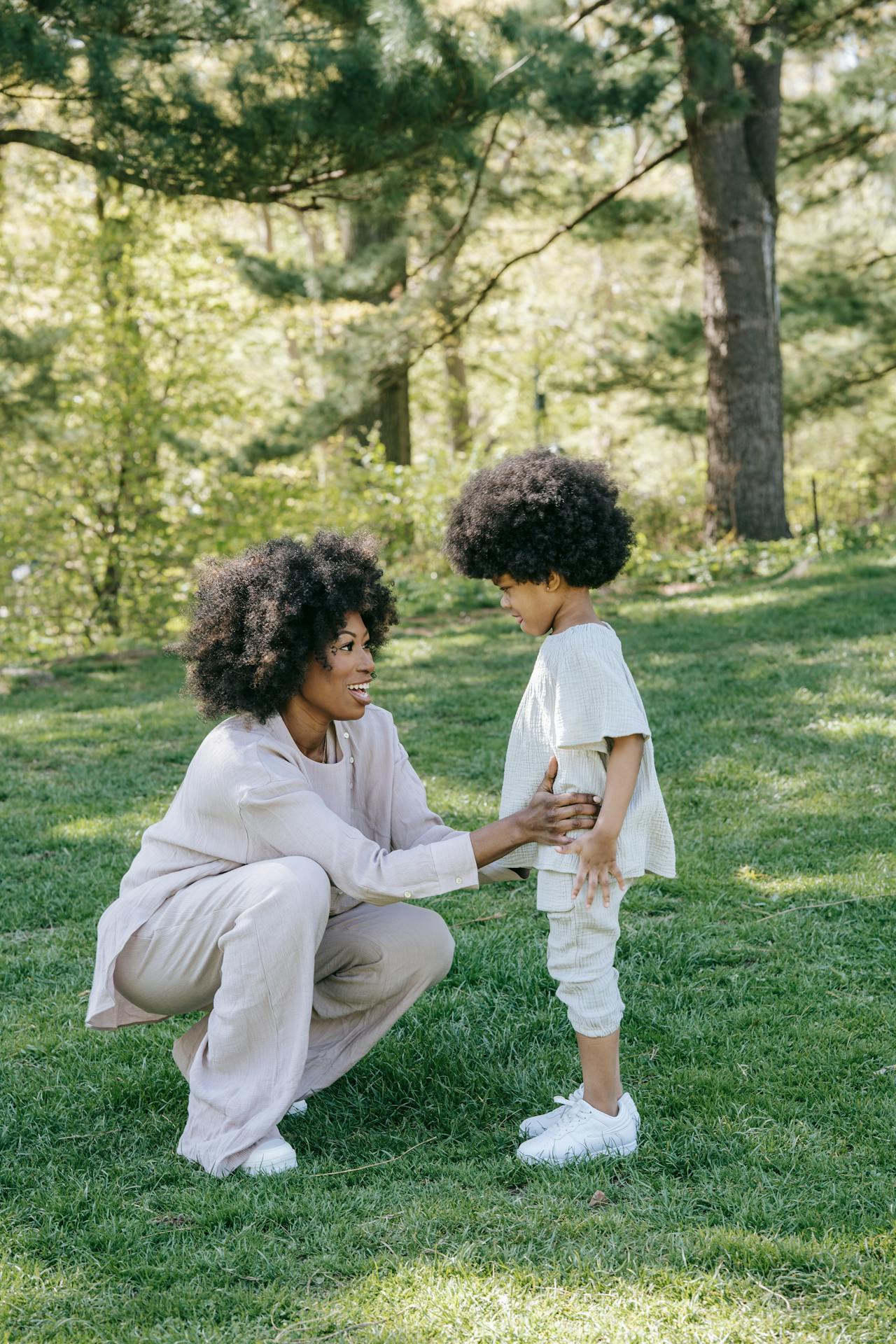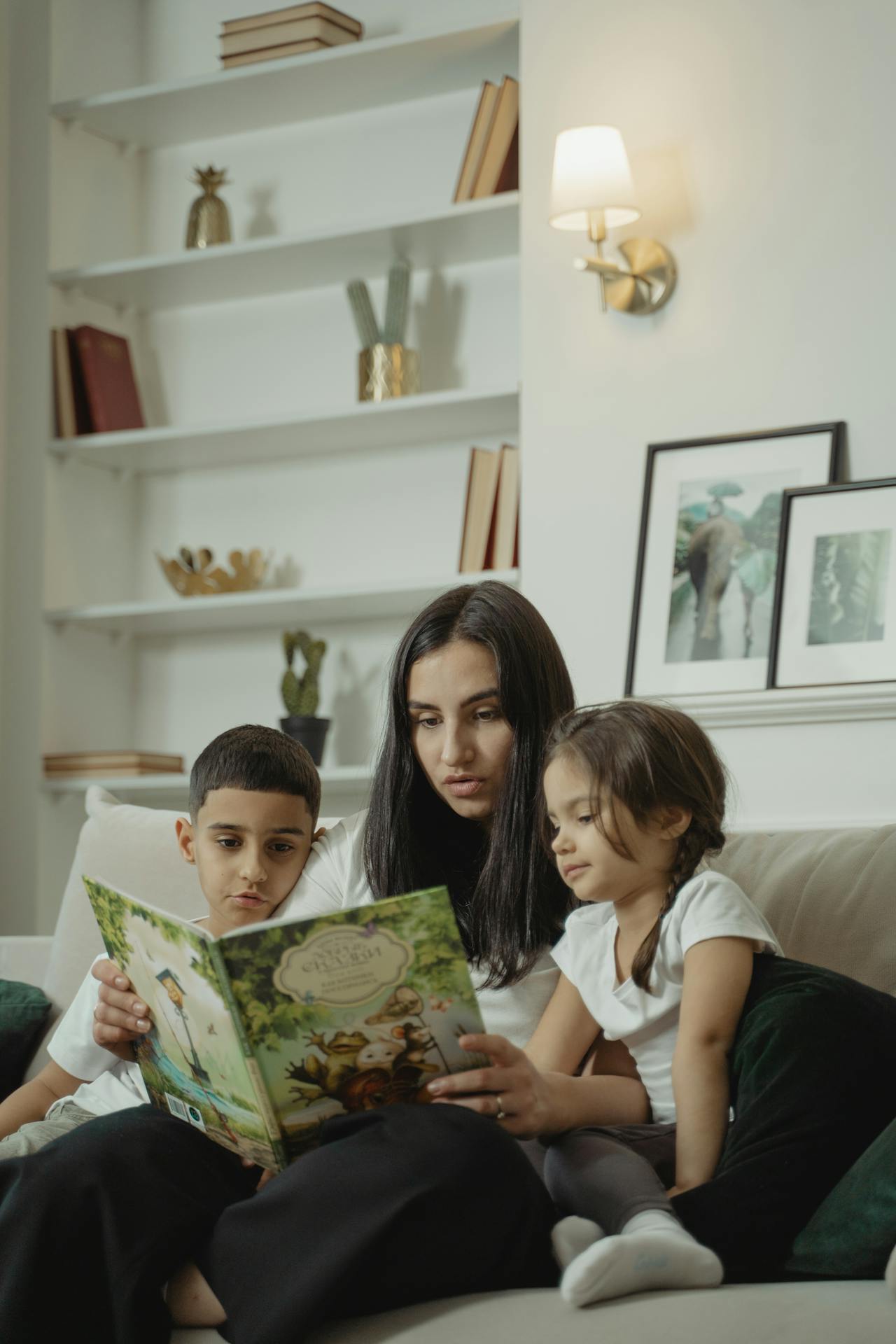Raising kids is a full-time job where you cannot slack. You want the best for your little ones and that means being a positive parent who also doesn’t lose their own sanity in the process.
Between the endless parenting responsibilities, it’s natural to wonder if you’re being too strict or too laid-back.
You want your children to grow up confident, respectful, and kind—but you also don’t want to crush their spirit with overly rigid rules. At the same time, you also have that fear of being so chill that the kids end up running the show, which will make you feel out of control.
There’s too much responsibility on your shoulders either way.
So, if any of this hits home, you’re in the right place because today, I’ll talk about positive parenting tips for healthy child development that’ll help you become the best for your children. We’ll do some real talk and find real solutions to help you nurture strong, happy kids without turning your home into a battlefield.
If parenting feels like a constant guessing game, and you’d love some clarity on balancing empathy with discipline, stick around.
Positive Parenting Tips for Healthy Child Development You Must Not Ignore

We all hope our kids turn into confident and caring individuals, but it’s easy to feel confused about what works and what might backfire in the long run. Luckily, some positive parenting tips for better behavior always work because they follow a balanced approach—not too laid back, not too restrictive. Here are some positive parenting tips for healthy child development that’ll help you raise a good family:
Show Love and Warmth
There’s a reason all those parenting books stress genuine affection: kids who feel valued tend to be more confident. And it’s all in the little things—like hugging them before bedtime and asking about their day at school in a way that shows they always have someone to talk to. When children sense that love isn’t conditional on perfect behavior, they trust you more and open up about their feelings.
Even on tough days, a short “I love you, and I’m here for you” can work wonders in building emotional connection with a child. Plus, children learn emotional cues from how we express care. For example, smiling when they enter the room shows that you notice and appreciate them, and this consistent warmth lays the groundwork for a secure attachment.
Use Positive Discipline
Discipline doesn’t have to be scary or mean, as there are ways to discipline without yelling. Positive discipline focuses on teaching rather than punishing. So when kids break a rule or push boundaries, you should help them understand why their actions aren’t okay instead of just doling out punishments with no explanation.
For instance, if your child draws on the wall, show them where paper is available and explain why crayons don’t belong on the paint. It’ll set clear guidelines but keep your relationship with your child intact. Also, you’ll have to be consistent with it. If you say bedtime is at 8 p.m., stick to it. And if you warn that certain behavior means a specific consequence, follow through. Children feel secure when they know the rules and trust you to be fair. This predictability reduces power struggles and teaches them to respect limits.
Help Them Understand Emotions
One of the best positive parenting tips for healthy child development is explaining emotions to them. It can save you endless power battles down the road because when they can say, “I’m angry” or “I’m sad,” they’re less likely to act out in extreme ways.
Teaching terms like “frustrated,” “scared,” or “excited” to the children gives them a safe vocabulary to express themselves. And then you can gently guide them by saying something like, “It looks like you’re feeling upset. Want to talk about it?” The payoff is huge with this one: children who can voice their emotions can handle stress better and form healthier relationships. They learn that all feelings are valid, and that it’s okay to experience them without shame.
Listen to Them

Attentive listening is one of those simple parenting techniques that always works. We often multitask or tune out when our kids talk non-stop. However, making deliberate time to hear them out can have a huge impact on their sense of self-worth.
Kids who feel heard can also develop better communication skills and confidence. They realize their thoughts are important, which encourages them to share openly—especially when something’s bothering them. Having this open channel with your kid can prevent many future meltdowns because they know they can talk to you before things get out of hand.
Be a Good Example
Children pick up on everything we do, right from our response to something we dislike to when we’re happy. So if we’re constantly snapping at people or complaining about life, they’ll assume that’s normal. On the other hand, when parents stay patient and respectful, it shows them what healthy behavior looks like.
Small acts, like saying “please” and “thank you,” can teach them how to interact kindly. And if you happen to lose your temper, take a deep breath, own your mistake, and show your child how to make amends. Everyday honesty also goes a long way—if you promise a family movie night, stick to it. When kids see you being true to your word, they learn to be trustworthy.
Praise Effort, Not Just Talent

It’s common to say, “You’re so smart!” when your child masters something. However, if you focus only on talent and desired results, they may fear failure. That’s why praising effort and celebrating the small steps is one the most positive parenting tips for healthy child development.
If they work hard on a school project, praise their dedication, not just the grade they receive. It helps them develop resilience and keeps them open to trying new things. Studies by psychologists like Carol Dweck suggest that praising effort builds what’s called a growth mindset, which eventually makes kids more confident when they face challenges.
Not obsessing over results also teaches them that mistakes are not the end of the world, and they learn to bounce back from setbacks. And that’s a crucial skill for raising happy children because it teaches them that success comes from the willingness to keep going even when things get tough.
Offer Small Choices
Kids like feeling like they have some say in day-to-day matters, like choosing which cereal to have in the morning or deciding between two toy options. Offering limited choices gives them a sense of control and helps in raising emotionally strong kids. This tactic helps reduce power struggles because they no longer feel railroaded by decisions they didn’t have a hand in.
Interestingly, tiny choices also provide a safe space for kids to practice problem-solving. If they pick a snack they don’t end up liking, they realize that their decisions have consequences, which will teach them to evaluate options more carefully.
Encourage Curiosity

Kids have a natural sense of wonder—they’ll ask the same “why” question a hundred times, and while it can be tiring, it’s also an opportunity for building emotional connection with a child. Show genuine interest in their questions and guide them to explore the answers. You can read a book together, watch an educational video, or go on a mini nature walk to learn new facts. When parents nurture a child’s curiosity, it boosts their creativity and problem-solving skills. It also sends the message that learning is fun, not a chore.
Look After Yourself, Too
It’s easy to forget about self-care when you’re busy figuring out how to be a positive parent and keep everyone else happy. But a parent who’s always running on fumes can’t give their best self to their child, no matter how many child development tips for parents they learn.
Try sticking to simple habits like getting enough sleep, eating balanced meals, and taking mental breaks when you can—these little actions keep you from burning out. Plus, you can’t pour from an empty cup—show them that maintaining mental and physical health is part of being responsible.
You’re Doing Great
You’ve come this far because you truly care about your child’s well-being, and that already makes you an amazing parent. If you follow these insights and keep negative voices at bay, you can create a safe space for both you and your child to grow. Your patience, understanding, and commitment to staying positive will help your kids become confident individuals ready to take on the world.
Trust yourself, stay strong, and watch them shine.
Suggested Reads:
FAQs
What is the best parenting style?
The best parenting style balances warmth, guidance, and clear boundaries. We call it “authoritative parenting,” and it sets fair rules while staying open to your child’s emotions and ideas. This style helps boost trust and respect, which eventually makes your kid feel valued rather than controlled. Since you stay calm and consistent in authoritative parenting, you show them that you’re on their side.
How to discipline a child?
Disciplining well starts with clarity. You let your child know which behaviors are acceptable and which aren’t—no vague rules. And if they cross a line, follow through with fair consequences right away. Keep your cool because yelling usually escalates issues and overshadows the lesson you’re trying to teach. At the same time, recognize good behavior with simple praises or high-fives to tell them how different their good or bad behavior plays out.
How to handle a difficult kid?
If you’re handling a difficult kid, dig into the “why” behind their actions. For example, pay attention to triggers—like fatigue or hunger—and address those first. It also helps to keep a regular routine, so they know what to expect and acknowledge their feelings even if you don’t agree. You should also offer outlets for built-up energy, like sports or arts, to give them a productive way to vent. Most importantly, let them know you’re listening, as feeling understood can calm even the most defiant behavior.









